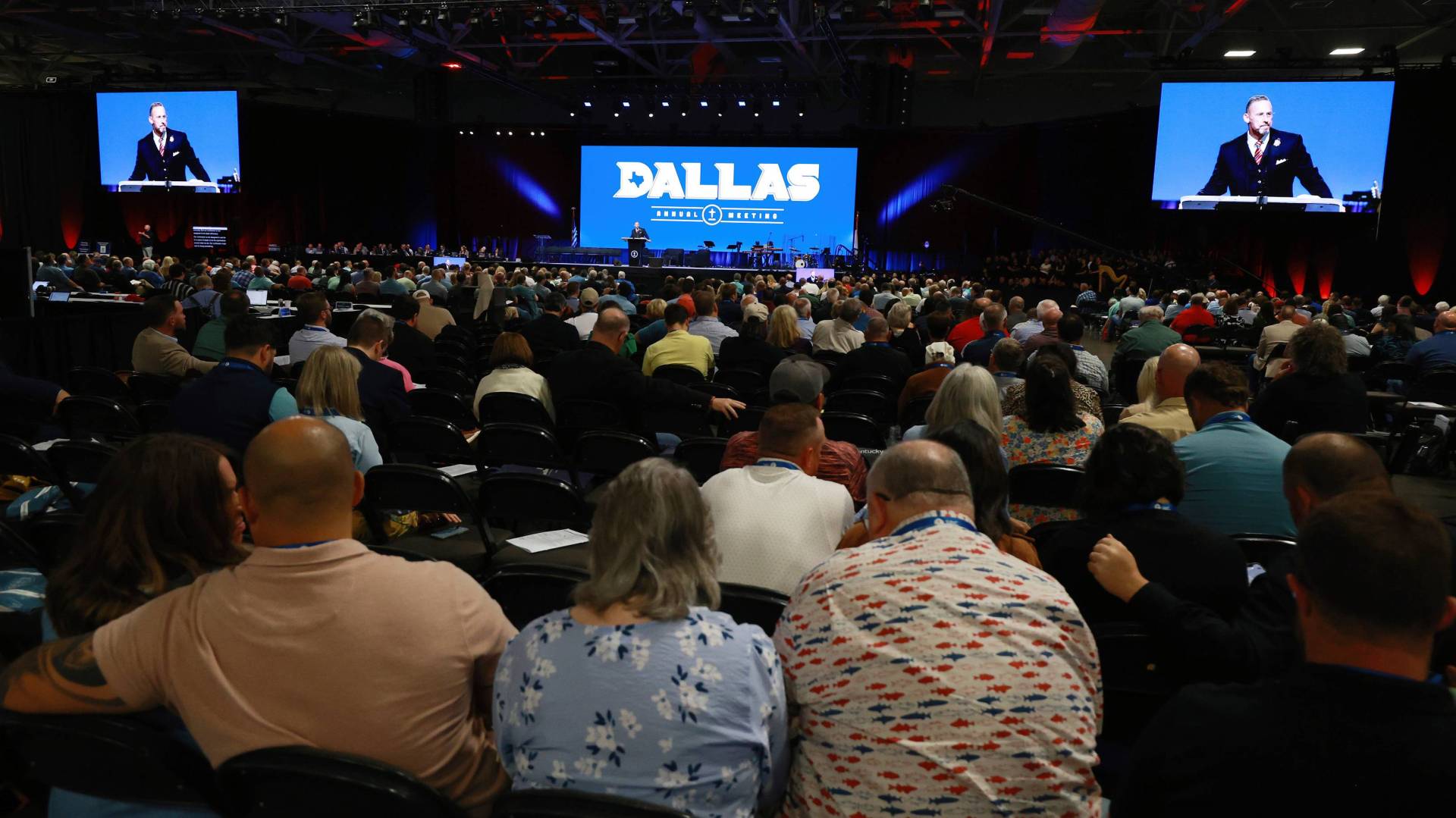Southern Baptists remain united in their long-standing opposition to gambling, pornography, abortion, and same-sex marriage, and they’re putting out stronger calls for the US government to ban what they see as sinful and harmful practices.
On Tuesday at the annual meeting, a slate of resolutions—positional statements meant to represent the position of the Southern Baptist Convention (SBC)—all passed by huge majorities with little to no debate.
Though the SBC’s opposition to gambling dates back to the 19th century, this week marks the first time Southern Baptists voted to condemn sports betting in particular. The new statement decries sports betting as predatory, backs government regulation, and asks Southern Baptists to refuse to participate.
It says the industry “fosters a culture of greed while specifically exploiting and preying upon young adults, the impoverished, and those with addictive personality traits.”
Since a 2018 Supreme Court decision overturning federal bans on sports betting, this form of gambling has blown up to a $13.7 billion industry in the US, with ads infiltrating sports media and broadcasts. Fewer than a dozen states have yet to legalize sports betting, and Texas remains a major holdout.
“Gambling is not a new temptation, but I believe that the advent of online sports gambling raises the stakes considerably on how seriously Christian leaders should address questions around the moral and theological nature of gambling,” Kyle Worley, a Southern Baptist pastor from Texas, wrote last year.
The SBC also passed its most comprehensive call for criminalizing pornography and eliminating it from the internet entirely.
“We urge the United States Congress and state legislatures to enact comprehensive laws that ban the creation, publication, hosting, and distribution of pornographic content in all media … in the ultimate effort to eradicate pornography nationwide,” the SBC resolution read.
The move comes a few weeks after President Donald Trump signed the Take It Down Act, banning revenge porn and digitally altered deepfakes. Southern Baptists commended the law as “model legislation” on the issue and also asked government officials to protect people from future AI-generated porn.
As online pornography becomes more pervasive, more adults in surveys admit to viewing porn, and some research shows that Christians are nearly as likely as Americans overall to see it as healthy rather than harmful.
Yet conservative Christians who have long spoken out against the harms of pornography also have more company. Companies like Pornhub face swelling pushback for allowing abusive material to appear on their sites.
Another resolution favored government restrictions on abortion pills, which have become more common since the pandemic and now account for 63 percent of abortions in the country.
Southern Baptists asked for national and state bans on medication abortion and for the Food and Drug Administration to revoke its approval of the medication mifepristone for abortions. The SBC cited an Ethics and Public Policy Center study, released in April, that found that the medical risks of medication abortion are underreported.
The SBC also approved wide-ranging resolutions on marriage, gender, and sexuality, which included calling for Obergefell v. Hodges, which legalized gay marriage in 2015, to be overturned along with other laws and rulings that “defy God’s design for marriage and family.”
In a Gospel Coalition article published ahead of the Obergefell anniversary this month, SBC resolutions committee chair Andrew Walker argued that even without any political will to overturn the ruling, Christians should hope and try to.
“Secular wins are neither inevitable nor unstoppable nor permanent,” said Walker, associate theology dean at Southern Baptist Theological Seminary. He cited a leveling off in support for gay marriage and concerns around the country’s fertility crisis as “small glimmers” of hope.
Same-sex marriage was not discussed or debated when the measure passed Tuesday, though SBC president Clint Pressley praised Southern Baptists’ clear stances against same-sex marriage and transgender identity in his address to the convention earlier in the day.
The marriage, gender, and sexuality resolution also spoke out against laws that recognize transgender identity, including in sports, and in favor of government incentives for growing families “in life-affirming ways.”
Because SBC pastors and churches operate autonomously, none of the resolutions compel or require action. They are meant to reflect the consensus and convictions of the convention and help Southern Baptists to “think Christianly about urgent ethical issues,” said Walker.
The resolutions reflect some recent areas of focus for the Southern Baptist public policy arm, the Ethics and Religious Liberty Commission (ERLC), which the messengers are once again considering a move to abolish.
Earlier this year, the ERLC issued a white paper on sports gambling as well as a guide for pastors who want to address the topic with their churches. “The gambling industry is rooted in predation, greed, covetousness, and idolatry,” agency staff wrote. “Additionally, the addictive nature of gambling leads to physical, emotional, and relational harm.”
Around 80 percent of evangelical pastors oppose legalizing sports betting, though pastors under 45 are less likely to agree, according to a Lifeway Research report released last year. Over half of pastors say they haven’t felt the need to address the issue with their churches.
The new resolution on sports betting also encourages pastors to educate churches “on the deceptive sin of gambling” and to offer counseling for those who become addicted.
The ERLC also advocated around regulations for pornography, particularly age-verification laws that restrict access to explicit sites, when the issue came before the Supreme Court in January.
“Over the last several years as the ERLC has worked on various proposals and authored an original Supreme Court brief advocating for age verification laws to protect children, we have seen the destructive effects and predatory nature of pornography,” said ERLC president Brent Leatherwood, who submitted the resolution.

















